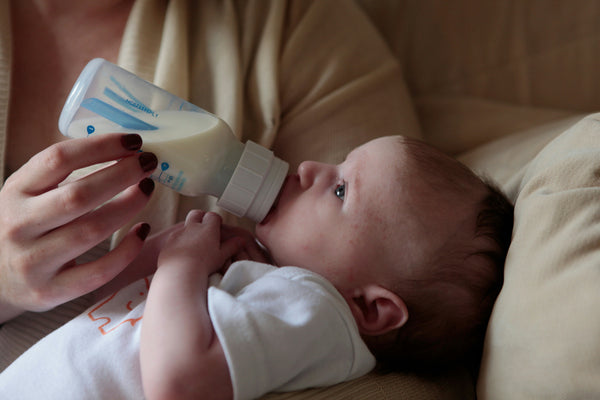Impact of Stress and Anxiety on Kid's Constipation
share this article

Constipation is a common gastrointestinal issue among kiddos, but what many parents may not realize is that stress and anxiety can play a significant role in exacerbating this condition. In this blog post, we'll explore what the current studies tell us about the relationship between stress, anxiety, and constipation in little ones.
Symptoms of Constipation in Kids
Constipation in kiddos is characterized by infrequent bowel movements, difficulty passing stools, and/or hard, dry stools. It can cause discomfort, pain, and distress, impacting the overall well-being of little ones.
Daily reads to help your little ones lead happier and healthier lives.
Join the
Happy Gut Club
The Influence of Stress and Anxiety
-
Gut-Brain Connection: The gut-brain axis, a bidirectional communication system between the gut and the brain, plays a crucial role in regulating various physiological functions, including digestion. Stress and anxiety can disrupt this communication, leading to changes in gut motility, sensitivity, and function.
-
Stress Hormones: When kiddos experience stress or anxiety, their bodies release stress hormones like cortisol and adrenaline, which can affect gastrointestinal function. Elevated stress hormone levels may slow down digestion, leading to constipation and abdominal discomfort.
-
Behavioral Factors: Stress and anxiety can also manifest as behavioral changes in kiddos, such as avoiding the toilet, withholding bowel movements, or experiencing difficulty relaxing during bathroom breaks. These behaviors can exacerbate constipation and contribute to a cycle of distress.
Research Insights On Sleep and Constipation
-
According to a study published in the Journal of Pediatric Gastroenterology and Nutrition, kiddos with anxiety disorders were more likely to experience functional gastrointestinal disorders, including constipation, compared to those without anxiety. The researchers suggested that psychological factors may contribute to gastrointestinal symptoms in kiddos.
-
Another study published in the journal Pediatrics found that stress and emotional factors were significantly associated with functional constipation in kiddos. The researchers highlighted the importance of addressing psychological factors in the management of constipation to improve treatment outcomes.
Practical Strategies for Managing Stress and Anxiety
-
Create a Calm Environment: Providing a supportive and nurturing environment at home can help reduce kiddos' stress and anxiety levels. Establishing routines, offering reassurance, and practicing relaxation techniques can promote emotional well-being.
-
Encourage Open Communication: Encouraging kiddos to express their feelings and concerns openly can help alleviate anxiety and stress. Listening attentively, validating their emotions, and offering guidance can empower kiddos to cope with stress more effectively.
-
Seek Professional Support: If kiddos experience persistent stress or anxiety that impacts their daily functioning, it's essential to seek support from healthcare professionals. Pediatricians, therapists, or counselors can provide guidance and interventions tailored to kiddos' needs.
Summary
Stress and anxiety can significantly impact kiddos' digestive health and exacerbate constipation. By addressing psychological factors, fostering a supportive environment, and seeking professional support when needed, parents can help alleviate stress and anxiety and promote optimal digestive function in little ones.
















